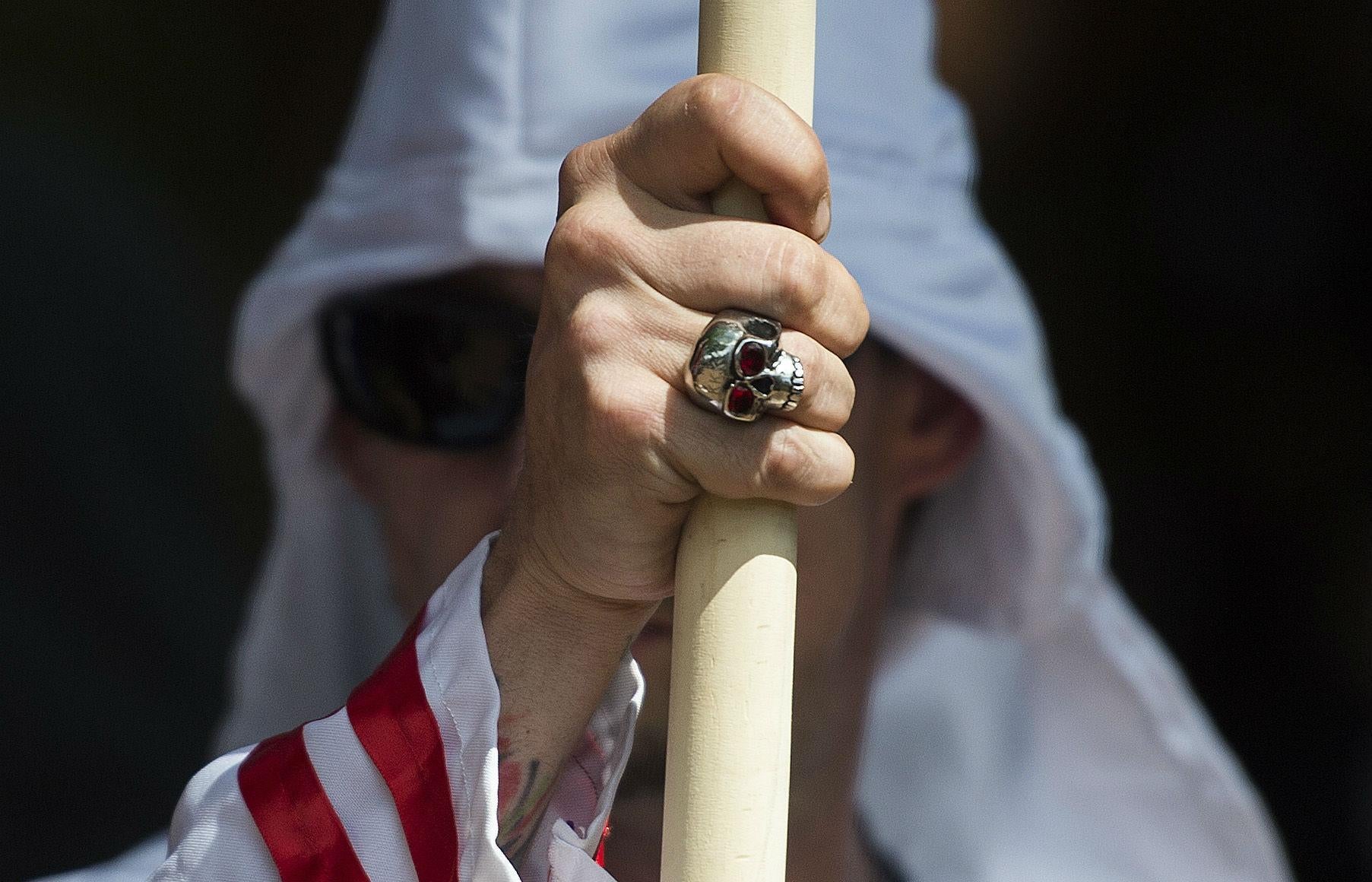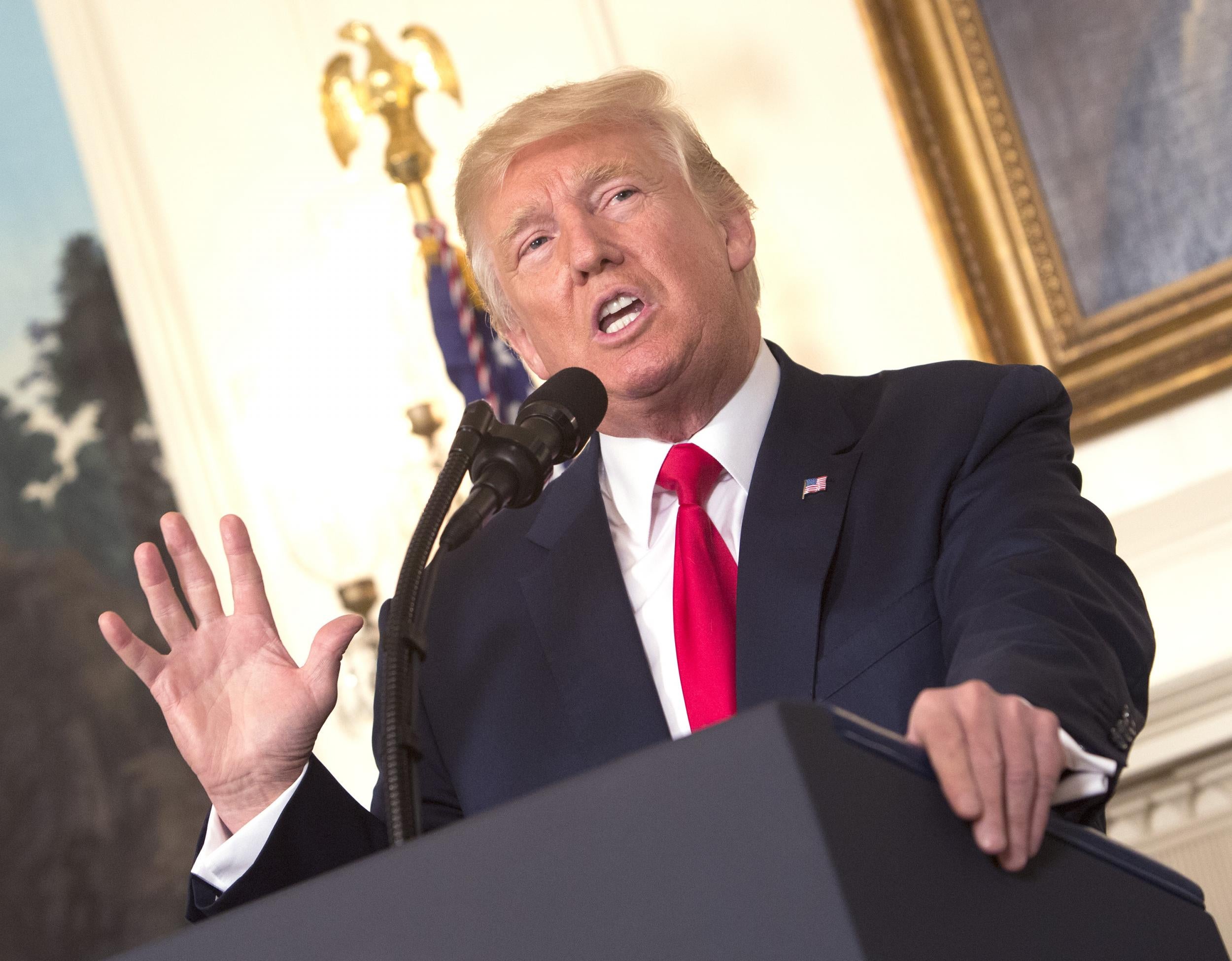Why blaming Donald Trump for Charlottesville's racist violence is dangerous
The President eventually condemned those responsible for what happened


Your support helps us to tell the story
From reproductive rights to climate change to Big Tech, The Independent is on the ground when the story is developing. Whether it's investigating the financials of Elon Musk's pro-Trump PAC or producing our latest documentary, 'The A Word', which shines a light on the American women fighting for reproductive rights, we know how important it is to parse out the facts from the messaging.
At such a critical moment in US history, we need reporters on the ground. Your donation allows us to keep sending journalists to speak to both sides of the story.
The Independent is trusted by Americans across the entire political spectrum. And unlike many other quality news outlets, we choose not to lock Americans out of our reporting and analysis with paywalls. We believe quality journalism should be available to everyone, paid for by those who can afford it.
Your support makes all the difference.When Donald Trump was elected President, far-right white supremacists could not have been happier. From the likes of former KKK imperial wizard David Duke, to the web savvy Andrew Anglin of the Daily Stormer, extremists celebrated the arrival of someone they believed frequently shared their views.
Richard Spencer of the National Policy Institute even organised a celebration party in Washington where people delivered Nazi salutes and shouted “Hail Trump”. “This is what a successful movement looks like,” claimed Spencer.
Since then, the man who frequently resorted to racism and Islamophobia during the presidential election campaign has delivered what many of those were hoping he would. He has ordered a crackdown on immigration, sought to block the entry to the US of citizens from six Muslim countries, and delivered a series of dog whistle gestures designed to fire up his base.

Activists say the number of hate crimes and attacks on people of colour has soared since Trump entered the Oval Office.
In the aftermath of the neo-Nazi and white supremacist-led violence in Charlottesville that left a young woman dead and up to 20 people injured, Trump was rightly criticised for being so slow to condemn what had played out and for seeking to suggest blame lay on “many sides”. Two days after the family of Heather Heyer was left shattered, and municipal workers in Charlottesville swept up the debris, Trump finally got around to denouncing the men carrying Swastikas. “Racism is evil,” he said, vacating his New Jersey golf club for a few hours to speak from the White House.
The criticism of Trump for his trudging reluctance to condemn the men in the capes and silly hats is utterly proper. As Ibrahim Hooper, national spokesman for the Council on American-Islamic Relations said, as President, Trump can set the national tone. “This is very dangerous,” he said.
But criticising Trump only goes so far, and it may ultimately distract from an uncomfortable, if obvious truth – namely that President Trump did not invent racism and he did not invent white supremacism. By scapegoating him for the ugly scenes on the streets of a Virginia college town, we risk failing to ask more difficult questions about ourselves, our colleagues, our workplaces and our communities.
In the spring of 2001, The Independent travelled to Birmingham, Alabama, to cover the trial of Thomas Blanton, one of four former members of the Ku Klux Klan who in 1963 planted a bomb in the city’s 16th Street Baptist Church, injuring more than 20 people and killing four young girls, one of them a friend of Condoleezza Rice, who would go on to become secretary of state.
A jury took less than three hours to deliver a guilty verdict on Blanton, who is still alive and aged 79. At the time, one of the locals attending the trial expressed hope that once Blanton’s kind had passed away, a younger, “post-racial” generation would take over, and such atrocities would be consigned to sepia-edged history.
That person’s words – hopeful but terribly naive – rushed to mind 14 years later, sitting on a public bench opposite the Emanuel African Methodist Episcopal Church in Charleston, South Carolina. The nation was stunned after Dylann Roof, a white supremacist with a fetish for slavery sites and the Confederate Flag, had stepped into the church and shot dead nine people and injured another three. They were all African American; Roof was white.
Roof was aged just 21. People wanted to know where he had learned his hatred, his bigotry. Some echoed that previous naive thought: wasn’t this kind of thing supposed to belong to an earlier age?
The truth is, that racism and the legacy of slavery continue to impact so much of life in every day America. For every struggle that is fought for and won – activist Bree Newsome’s removal of the Confederate flag from the South Carolina state house grounds springs to mind – there is another step backwards, be it in the form of voter suppression laws or the gerrymandering of districts to minimise the electoral impact of people of colour.
From a skewed criminal justice system that includes many police officers who appear more prepared to shoot black and Latino suspects than white ones, to access to education and jobs and healthcare, and frequently overlooked issues such as environmental injustice, racism and bigotry are a constant in the experiences of people of colour. It is our duty – meaning white people, individuals of privilege – to acknowledge it and to work to address it.
It would be tempting to blame the bigoted New York tycoon for all of this ugliness, but that would be a cop out.
Join our commenting forum
Join thought-provoking conversations, follow other Independent readers and see their replies
Comments